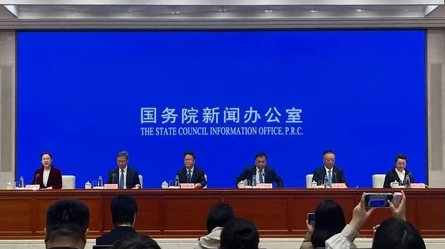

The recent National Development and Reform Commission (NDRC) meeting in China was considered disappointing by many investors. Expectations were high that the NDRC would announce significant new stimulus measures to boost the struggling economy, especially in light of China’s ongoing property market crisis and weakening consumer demand. However, the NDRC refrained from introducing large-scale fiscal interventions, opting instead to reiterate confidence in meeting economic goals without rolling out more aggressive support.
This left investors underwhelmed, as many had hoped for bold fiscal initiatives to jumpstart growth. Shanghai composite index stumbled and fell -6.6% in a day.
Shanghai Composite Index 1 Week Performance

The main issue was the lack of new major policies to stimulate the economy. For example, the NDRC discussed bringing forward 100 billion yuan of investment planned for 2025 and accelerating the issuance of special bonds, but these measures were smaller in scale than what many expected.
Market forecasts had anticipated stimulus packages in the range of 2 to 3 trillion yuan, focusing on infrastructure and local government financing, but these expectations were unmet. This led to a drop in market confidence, with Hong Kong's Hang Seng Index and U.S.-listed Chinese stocks seeing sharp declines.
Many believes that while China may still achieve its growth target of around 5%, the absence of more aggressive fiscal measures raises doubts about the sustainability of the current economic recovery. Further reforms to address deeper issues like the property sector’s debt crisis and weak domestic demand are seen as necessary to secure long-term stability.
China GDP Growth

Source: Reuters
That being said, we believe it's too early to judge the size of China's stimulus based on this one announcement, as we predict that this might just be the tip of the iceberg. We suspect that China is likely to announce more stimulus measures in the future, step-by-step, eventually reaching the scale that investors are anticipating.
We still believe in Indonesia's bright economic outlook, although we may want to be more cautious as the 10-year government bond yield has started to spike slightly recently.
Indonesia 10 Year Bond Yield (6 Months)

Therefore, we recommend investors to remain cautious, especially with stocks which foreign ownership is high. We believe the foreign investor's outflow may have eased to recent sizeable outflow, yet it may still continue for a quite some time. In our view, a neutral stance on the large-cap stocks is wiser than an overweight stance. Should the bond yield continues to go higher, Rupiah will weaken further which we believe is likely to trigger more outflow from Indonesia capital market.

Comments